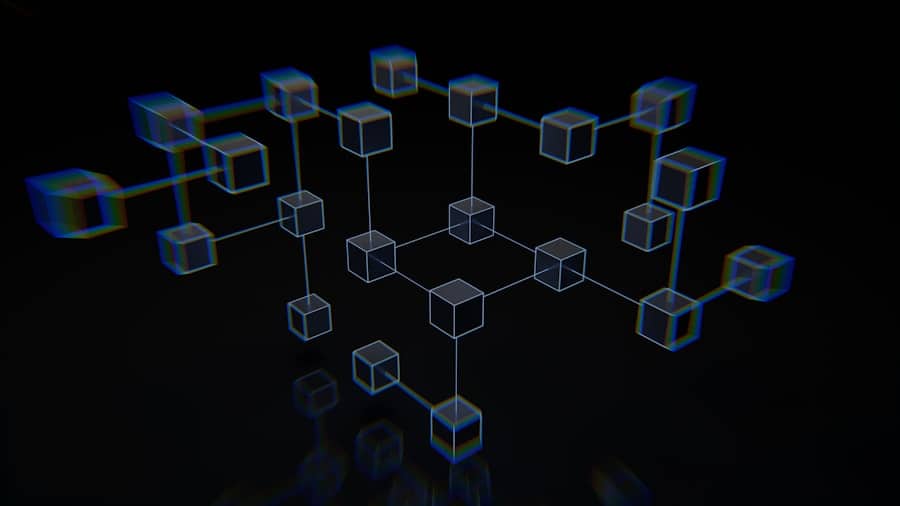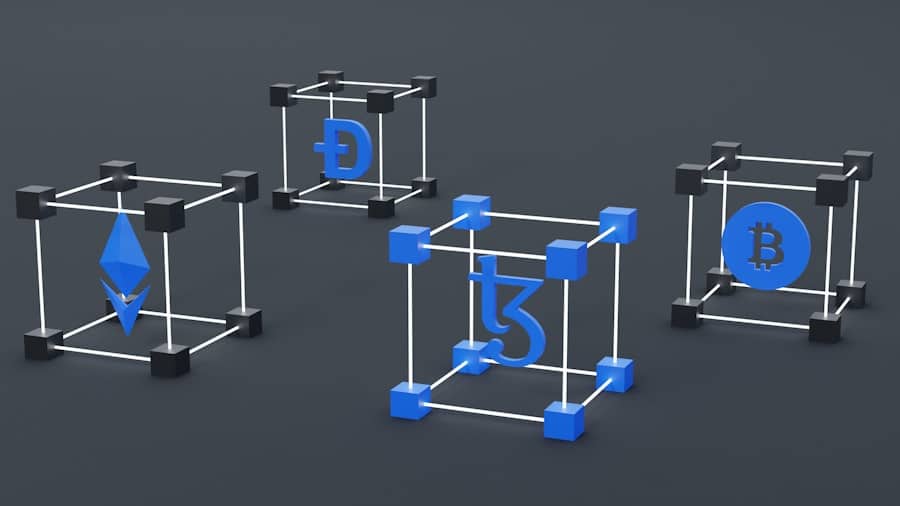In an increasingly digital world, the concept of identity has evolved significantly. Traditional identity systems, often reliant on centralized authorities such as governments and corporations, have come under scrutiny for their vulnerabilities and inefficiencies. Self-sovereign digital identities (SSDI) emerge as a revolutionary alternative, empowering individuals to control their own identity data without the need for intermediaries.
This paradigm shift not only enhances privacy and security but also fosters trust in digital interactions. By allowing users to manage their identities autonomously, SSDIs promise to reshape how we engage with online services, conduct transactions, and verify our identities in various contexts. The essence of self-sovereignty in digital identities lies in the principle that individuals should have full ownership and control over their personal information.
This means that users can selectively share their data with service providers while retaining the ability to revoke access at any time. The implications of this shift are profound, as it challenges the status quo of identity management and opens up new avenues for innovation in various sectors, including finance, healthcare, and education. As we delve deeper into the mechanics of SSDIs, it becomes essential to understand the underlying technology that enables this transformation—blockchain.
Key Takeaways
- Self-sovereign digital identities empower individuals to have control over their own personal information and how it is shared.
- Blockchain technology provides a decentralized and secure platform for managing digital identities, ensuring immutability and transparency.
- Blockchain plays a crucial role in securing digital identities by providing a tamper-proof and transparent ledger for identity management.
- Advantages of self-sovereign digital identities enabled by blockchain include increased privacy, reduced identity theft, and improved user control.
- Challenges and limitations of blockchain in self-sovereign digital identities include scalability issues, regulatory concerns, and interoperability with existing systems.
Understanding Blockchain Technology
Decentralized and Immutable Ledger
At its core, a blockchain is a distributed database that allows multiple parties to maintain a shared record without the need for a central authority. Each block in the chain contains a list of transactions, a timestamp, and a cryptographic hash of the previous block, creating a secure and tamper-proof chain of information.
Enhanced Security and Transparency
This structure not only enhances security but also ensures transparency, as all participants in the network can access the same information. One of the most significant features of blockchain technology is its consensus mechanism, which ensures that all participants agree on the validity of transactions before they are added to the blockchain.
Consensus Mechanisms and Resilience
Various consensus algorithms exist, such as Proof of Work (PoW) and Proof of Stake (PoS), each with its own strengths and weaknesses. These mechanisms prevent malicious actors from altering the data and ensure that the integrity of the blockchain is maintained. Furthermore, blockchain’s decentralized nature eliminates single points of failure, making it inherently more resilient against cyberattacks and data breaches compared to traditional centralized systems.
The Role of Blockchain in Securing Digital Identities

Blockchain plays a pivotal role in securing self-sovereign digital identities by providing a robust framework for identity verification and management. In traditional identity systems, personal information is often stored in centralized databases that are vulnerable to hacking and unauthorized access. In contrast, blockchain allows individuals to store their identity data in a decentralized manner, where it is encrypted and distributed across multiple nodes in the network.
This decentralization significantly reduces the risk of data breaches, as there is no single target for attackers. Moreover, blockchain enables users to create verifiable credentials that can be shared with third parties without exposing sensitive information. For instance, instead of providing a full government-issued ID to prove age or citizenship, an individual can share a cryptographic proof that verifies these attributes without revealing unnecessary personal details.
This selective disclosure capability not only enhances privacy but also minimizes the risk of identity theft. By leveraging smart contracts—self-executing contracts with the terms directly written into code—blockchain can automate identity verification processes, further streamlining interactions between users and service providers.
Advantages of Self-Sovereign Digital Identities Enabled by Blockchain
The advantages of self-sovereign digital identities enabled by blockchain technology are manifold. One of the most significant benefits is enhanced privacy control for individuals. Users can choose what information to share and with whom, reducing the likelihood of data misuse or unauthorized access.
This level of control is particularly crucial in an era where data breaches are commonplace and personal information is often commodified by corporations. Additionally, SSDIs can lead to increased efficiency in identity verification processes. Traditional methods often involve lengthy procedures requiring multiple documents and manual checks by service providers.
In contrast, blockchain-enabled identities can facilitate instant verification through cryptographic proofs, significantly reducing wait times and administrative burdens. This efficiency is especially beneficial in sectors like finance and healthcare, where timely access to verified identities can be critical. Another advantage lies in the potential for inclusivity.
Many individuals around the world lack access to formal identification systems due to various socio-economic barriers. Self-sovereign digital identities can provide these individuals with a means to establish their identity online, enabling them to participate in the digital economy and access essential services. By lowering barriers to entry, SSDIs can promote greater social equity and empower marginalized communities.
Challenges and Limitations of Blockchain in Self-Sovereign Digital Identities
Despite the promising potential of self-sovereign digital identities powered by blockchain technology, several challenges and limitations must be addressed for widespread adoption.
For SSDIs to be effective, they must be able to communicate seamlessly across various platforms and jurisdictions.
However, the lack of standardized protocols can hinder this interoperability, leading to fragmented identity ecosystems that complicate user experiences. Another challenge lies in user education and awareness. Many individuals may not fully understand how blockchain technology works or the implications of managing their own digital identities.
This knowledge gap can lead to reluctance in adopting SSDIs, as users may fear losing access to their identities or making mistakes in managing their data. To overcome this barrier, comprehensive educational initiatives are necessary to inform users about the benefits and functionalities of self-sovereign identities. Regulatory concerns also pose significant challenges for the implementation of SSDIs.
The absence of clear legal frameworks can create uncertainty for both users and service providers, potentially stalling innovation in this space. Striking a balance between fostering innovation and protecting citizens’ rights will be crucial for the successful integration of blockchain-enabled self-sovereign identities into existing legal systems.
Real-World Applications of Blockchain-enabled Self-Sovereign Digital Identities

The real-world applications of blockchain-enabled self-sovereign digital identities are diverse and impactful across various sectors. In the financial industry, for instance, banks and financial institutions are exploring how SSDIs can streamline customer onboarding processes while enhancing security measures against fraud. By allowing customers to verify their identities through blockchain-based credentials, financial institutions can reduce compliance costs associated with Know Your Customer (KYC) regulations while improving user experience.
In healthcare, self-sovereign digital identities can revolutionize patient data management. Patients could maintain control over their medical records stored on a blockchain, granting access to healthcare providers only when necessary. This approach not only enhances patient privacy but also facilitates better coordination among healthcare professionals by ensuring that they have access to accurate and up-to-date information when treating patients.
Education is another sector ripe for transformation through SSDIs. Educational institutions can issue verifiable credentials on a blockchain that students can carry with them throughout their careers. This would simplify the process of verifying degrees and certifications for employers while reducing instances of credential fraud.
As more institutions adopt this model, it could lead to a more efficient job market where qualifications are easily verifiable.
Future Implications of Blockchain in Self-Sovereign Digital Identities
Looking ahead, the implications of blockchain technology for self-sovereign digital identities are profound and far-reaching. As more individuals recognize the importance of privacy and control over their personal data, demand for SSDIs is likely to grow exponentially. This shift could lead to a fundamental rethinking of how identity is perceived in society—moving from a centralized model dominated by institutions to a decentralized model where individuals hold power over their own identities.
Moreover, advancements in technology may further enhance the capabilities of SSDIs. Innovations such as zero-knowledge proofs could allow users to prove certain attributes without revealing any underlying data, thereby increasing privacy even further. As these technologies mature, they could enable more sophisticated applications across various industries while addressing some of the current limitations associated with blockchain-based identities.
The regulatory landscape will also evolve alongside these developments. Governments may begin to recognize the value of self-sovereign identities in combating fraud and enhancing security while ensuring compliance with privacy regulations like GDPR or CCPCollaborative efforts between public and private sectors could lead to standardized frameworks that facilitate interoperability while protecting individual rights.
Conclusion and Recommendations for Implementing Blockchain-enabled Self-Sovereign Digital Identities
To successfully implement blockchain-enabled self-sovereign digital identities, stakeholders must prioritize collaboration among technology providers, regulatory bodies, and end-users. Establishing clear standards for interoperability will be essential in creating a cohesive ecosystem where different identity solutions can work together seamlessly. Additionally, fostering public-private partnerships can help bridge gaps in knowledge and resources while driving innovation forward.
Education initiatives should also be at the forefront of any implementation strategy. By equipping users with knowledge about how SSDIs function and their benefits, stakeholders can alleviate concerns surrounding adoption while empowering individuals to take control of their digital identities confidently. Finally, ongoing dialogue between regulators and industry leaders will be crucial in shaping policies that support innovation while safeguarding individual rights.
As we move toward a future where self-sovereign digital identities become commonplace, it is imperative that we navigate these challenges thoughtfully to unlock the full potential of this transformative technology.
In a recent article on enicomp.com, the importance of blockchain technology in enabling self-sovereign digital identities was discussed. This concept is crucial in ensuring individuals have control over their own personal data and online identities. To further explore the potential of blockchain technology, readers may be interested in an article comparing the Apple Watch and Samsung Galaxy Watch here.
FAQs
What is self-sovereign digital identity?
Self-sovereign digital identity refers to the concept of individuals having control over their own digital identities without the need for a central authority. It allows individuals to own, manage, and share their personal information in a secure and private manner.
What is blockchain?
Blockchain is a decentralized, distributed ledger technology that enables secure and transparent recording of transactions. It consists of blocks of data that are linked together using cryptographic techniques, making it tamper-resistant and immutable.
How does blockchain enable self-sovereign digital identities?
Blockchain enables self-sovereign digital identities by providing a secure and decentralized platform for individuals to store and manage their personal information. The use of cryptographic techniques and consensus mechanisms ensures the integrity and privacy of the data, giving individuals full control over their digital identities.
What are the benefits of using blockchain for self-sovereign digital identities?
Some benefits of using blockchain for self-sovereign digital identities include enhanced security, privacy, and control over personal data. Blockchain also reduces the risk of identity theft and fraud, as well as the reliance on centralized authorities for identity verification.
Are there any challenges associated with using blockchain for self-sovereign digital identities?
Challenges associated with using blockchain for self-sovereign digital identities include scalability, interoperability, and regulatory compliance. Additionally, there may be concerns about the accessibility and usability of blockchain-based identity solutions for the general population.

